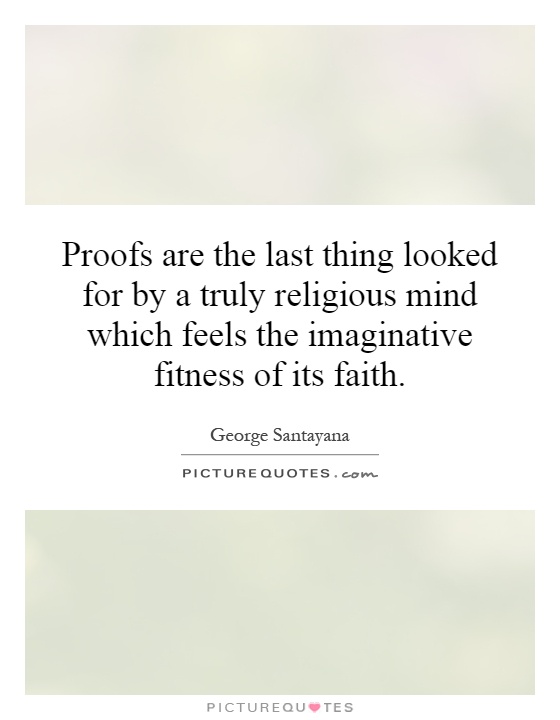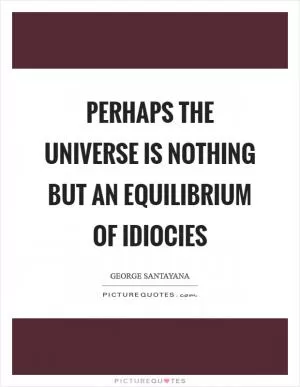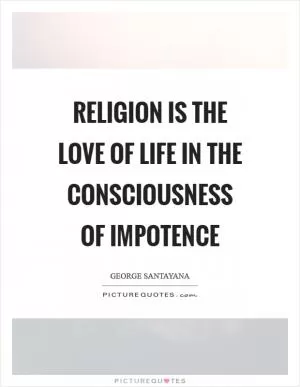Proofs are the last thing looked for by a truly religious mind which feels the imaginative fitness of its faith

Proofs are the last thing looked for by a truly religious mind which feels the imaginative fitness of its faith
George Santayana, a renowned philosopher and essayist, once stated that "proofs are the last thing looked for by a truly religious mind which feels the imaginative fitness of its faith." This statement encapsulates the essence of faith and belief in a higher power, emphasizing the importance of intuition and emotional connection over rational evidence.Santayana's perspective on religion reflects his belief in the power of imagination and intuition in shaping one's faith. He suggests that a truly religious individual does not rely solely on logical proofs or empirical evidence to validate their beliefs. Instead, they are guided by a deep sense of inner conviction and spiritual connection that transcends the limitations of reason.
For Santayana, the "imaginative fitness" of faith refers to the emotional resonance and personal significance that one's beliefs hold. It is not about adhering to dogma or doctrine, but rather about finding meaning and purpose in one's spiritual journey. This imaginative fitness allows individuals to connect with something greater than themselves and find solace and inspiration in their faith.
In a world that often prioritizes scientific evidence and logical reasoning, Santayana's perspective offers a refreshing alternative that values the intuitive and emotional aspects of faith. He suggests that true religious experience is not about proving the existence of a higher power, but rather about embracing the mystery and wonder of the divine.
Santayana's philosophy on religion challenges us to look beyond the confines of rationality and embrace the beauty and complexity of faith. It reminds us that belief is not always about certainty or proof, but about trust, hope, and a deep sense of connection to something greater than ourselves.












 Friendship Quotes
Friendship Quotes Love Quotes
Love Quotes Life Quotes
Life Quotes Funny Quotes
Funny Quotes Motivational Quotes
Motivational Quotes Inspirational Quotes
Inspirational Quotes